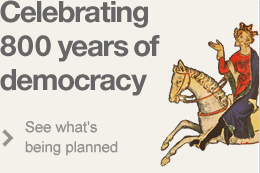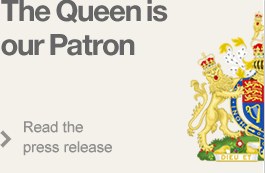Geoffrey de Say sat in the baronial camp in an uneasy alliance with Geoffrey de Mandeville, his cousin but also his rival for the inheritance of the de Mandeville earls of Essex. The competition between the two men and their families affords a reminder that there were divisions within the baronial camp as well as between the rebel barons and the king. No more than any other medieval opposition such as the Appellants in Richard II’s were the Twenty Five of John’s reign a solid monolithic bloc unhindered by faction or rivalry.
The two Geoffreys both had a claim on the estates of another kinsman, William de Mandeville, third earl of Essex, the last of his line, who had died without issue in 1189. De Say’s claim arose from his grandmother, the long-lived Beatrice de Say, the first Mandeville earl’s sister, who transmitted her rights to her son, while Geoffrey de Mandeville’s claim was inherited from his mother, another Beatrice, the wife of Geoffrey FitzPeter and daughter and eventual coheiress of William de Say II, William I’s son. Geoffrey de Say I, our Geoffrey’s father, obtained a grant of the disputed lands from Richard the Lionheart in 1189, but was unable to raise the huge sum of 7,000 marks (about £2333), which the king demanded as his price. The estates, accordingly, reverted to the king and he awarded them to Geoffrey FitzPeter, a powerful lord and later King Richard’s justiciar. FitzPeter and his wife were confirmed in their possession of the estates by a royal charter granted at Messina on 23 January 1191. The early stages of the dispute are told in a fascinating account in the chronicle of Walden Abbey (Essex), The Foundation Book of Walden Monastery.
The younger Geoffrey had started his career under Richard and John fighting in the defence of Normandy and had evidently lost property there when the duchy was finally overrun by the French. As early as 1202 the duchy’s seneschal was instructed to find as much as one hundred liberates of land with which to compensate him for the losses which he had suffered.
In 1214, after his father’s death, he reactivated the family claim to the Mandeville inheritance, this time against FitzPeter’s son – Earl Geoffrey – taking advantage of his service with the king in Poitou to offer him no less than 15,000 (£10,000) marks for possession. John wrote to the justiciar in England ordering him to take advice on what might be the best course to take. No further actions are recorded, and presumably the justiciar did nothing. It is no surprise, in that case, in 1215 to find Geoffrey on the rebel side, aggrieved at his failure to secure justice. In June he was named to the Twenty Five and in November he was involved alongside FitzWalter and de Clare in the fruitless negotiations with the king to find a settlement. Siding with Louis and the French, he only made his peace with the royalists after the massive baronial defeat at Lincoln in May. He was not active in the politics of Henry III’s Minority. In 1219 he went on a pilgrimage to the Holy Land and in 1223 to Santiago de Compostella, apparently in the company of Earl Warenne. He died on 24 August 1230 while campaigning with Henry III in Poitou.
Geoffrey married Alice de Chesney, whose date of death is unknown, and he left a son William, who succeeded him and lived to 1271.
By Professor Nigel Saul, Royal Holloway, University of London.
Featured Article
Rex no potest peccare (The King can do no wrong). How many of you have read Unbroken, the bestseller by Laura Hillenbrand about Olympic runner Louis Zamperini ‘s experiences in World War II? Perhaps ...
Read on...Recent Articles
- Magna Carta's American Adventure
- 800th anniversary of Bristol...
- Bristol 800 concert and...
- Emancipation and Magna Carta
- Terrorism and Tolerance -...
- Magna Carta
- Magna Carta Benches mark...
- ABA Magna Carta Memorial...
Stay updated
If you would like to keep informed about the work of the Magna Carta Trust and our partners, please sign up to the newsletter below.
Become a Supporter
There are a number of significant supporter opportunities. Register your interest early to ensure the widest range of options.
Find out more




